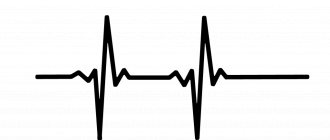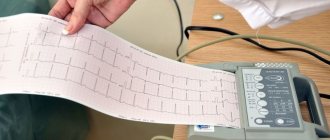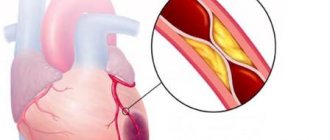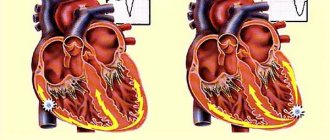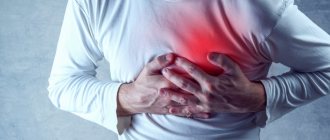October 12, 2021
1321
The international classification of cardiac drugs includes a group of cardiac glycosides, antiarrhythmic drugs, non-glycoside cardiotonic drugs, peripheral vasodilators and other cardiac drugs. They are intended for the treatment of cardiovascular diseases with various pathologies.
- Cardiac glycosides restore the functioning of the heart muscle, eliminate arrhythmia and stimulate heart activity. Obtained from plants: foxglove, lily of the valley, adonis.
- Antiarrhythmic drugs eliminate disruptions and restore normal heart rhythm. Prescribed for the treatment of arrhythmia, tachycardia, ventricular fibrillation.
- Non-glycoside cardiotonic drugs stimulate the heart and increase contraction of the heart muscle. Used in case of diagnosis of heart failure, hypotension.
- Peripheral vasodilators dilate blood vessels and help normalize blood circulation. They facilitate the work of the heart and increase the saturation of vital organs with oxygen.
- Other heart medications include a wide range of medications that help quickly improve heart function.
What pills to take for different heart pains
The classification of cardiac drugs used by doctors includes essential drugs to relieve heart pain. It is better not to ignore this symptom, and always have heart medications in your home medicine cabinet. In case of weakness, shortness of breath, acute pain, pale face and cold sweat, you must urgently call an ambulance.
Pain in the heart may indicate a person’s emergency condition:
- myocardial damage and malfunction of the heart muscle;
- coronary (coronary) vessels that deliver oxygenated blood to the heart;
- cardiac membranes, valves;
- pain can also appear from organs and tissues located near the heart - lungs, bronchi, muscles, ligaments and even bones.
There are many reasons for the appearance of these symptoms, so in each case different pills for heart pain are indicated.
Relief of acute pain arising behind the sternum is carried out with Nitroglycerin. This first aid remedy in the form of small tablets should always be in your first aid kit. It works against angina attacks. The patient is also advised to rest completely; it is necessary to go to the hospital and undergo an examination.
Delay in this case can lead to a heart attack.
The doctor prescribes treatment to relieve pain attacks and prevent relapses. The choice of drugs is based on the diagnosis, the presence of chronic diseases, age, and characteristics of the body. Pain relief is carried out with the help of analgesics to directly affect the receptors; drugs are also used to relieve spasms, enhance metabolism, and others.
Infusion therapy at the Paracelsus clinic, Sergiev Posad, Alexandrov
ATTENTION:
Online consultations with doctors (more than 18 specialties) are available.
Infusion therapy (intravenous drip)
- a method of treatment based on the introduction of solutions into the bloodstream in order to ensure the patient’s recovery or improve his condition. Depending on the clinical situation, the infusion solution should contain the appropriate active pharmaceutical ingredient.
Infusion therapy
– an integral part of the complex treatment of urgent conditions and chronic diseases of the internal organs of the human body. The doctor determines the course of infusion therapy individually for each patient.
Goals of fluid therapy
— the main goal of infusion therapy is the rapid and effective restoration of central and peripheral hemodynamics, correction of rheological parameters of the blood, acid-base and electrolyte balance, hemostasis system, removal of toxic waste products of pathogenic microorganisms and components of impaired metabolism, providing energy to the vital functions of internal organs.
How to relieve acute pain in the heart
First aid medications are designed for different types of heart pain - sharp and burning, dull and pressing, intermittent and arising under the influence of stress.
- Validol is applied under the tongue, it dissolves slowly and has an effect in a condition characteristic of a panic attack. The patient complains of pain in the heart area, malaise, lack of air, cold sweat.
- Nitroglycerin is also available without a prescription and is effective for attacks of chest pain and the development of coronary heart disease. The tablet or capsule is taken under the tongue, so it is absorbed into the blood faster. If necessary, you can put another one, the effect occurs in 3 – 5 minutes. It is forbidden to take more.
- Corvalol tablets, drops in a bottle can also be bought without a prescription. The complex composition includes ethyl bromizovalerianate, peppermint oil, and phenobarbital. Take 20 drops per glass of water or one tablet also under the tongue. Relieves pressing pain in the heart, also relieves stabbing and cutting pain, a feeling of heaviness.
- Cardiket tablets with a prolonged effect contain isosorbide dinitrate, which has a pronounced vasodilating effect. It relieves arterial spasm, lowers blood pressure, and has a long-lasting effect.
- Novo-passit is a sedative, available in tablets and syrup, prescribed for vague pain in the heart area, with the appearance of anxiety, depression. They are also used in complex therapy in case of cardiac pathologies. It is prohibited to use by drivers of vehicles, as well as with alcohol.
Carrying out infusion therapy
Intravenous infusions should only be carried out by a qualified specialist who is familiar with the characteristics of the administration of various substances, their combination and the possible reaction of the patient’s body. Particular attention is paid to the speed of administration of the infusion solution with dissolved agents. Trust your health only to active professionals. This will avoid adverse health consequences: hematoma, allergic reaction, pain and redness.
First, the injection site (usually the elbow) is treated with an antiseptic. The vein is prepared in the traditional way using a tourniquet and secured by tautening the skin. The needle is inserted when the hand is clenched into a fist; The tourniquet is removed when blood appears in the needle cannula. Next, the infusion system is attached to the cannula and the clamp opens, allowing the fluid to flow. The speed of the drops is adjusted depending on the doctor's recommendations.
During the procedure, a nurse monitors the process. At the end of the procedure, the clamp is closed, the needle is carefully pulled out of the vein using a cotton pad moistened with an antiseptic. Typically, the IV site is bandaged to stop bleeding.
The heart is pressing - pills that help
Pressing pain behind the sternum is relieved with tablets from the nitrate group of drugs (Nitroglycerin). In accordance with the generally accepted classification of cardiac drugs, you can choose different cardiac drugs as prescribed by your doctor.
For this purpose, the patient needs to call an ambulance. Before the doctor arrives, you can take 1 tablet with an interval of 5 minutes:
- Nitroglycerin under the tongue, sublingually;
- Aspirin Cardio tablet crushed into powder inside, orally;
- Or analogues of this drug - Acetylcardio-Lect, Thrombopol, Aspicard, Trombogard, Aspinat, CardiAsk and others.
Further treatment will be prescribed by a cardiologist after a comprehensive examination of the patient. Complaints include pressing pain in the heart area, radiating to the left arm and little finger, lack of oxygen, convulsions, nausea, panic and fainting.
Cardiac glycosides
The safest group of drugs that use digitalis extract as the main active ingredient. The cost of drugs in this group is not high.
Celanide
The drug improves the quality of heart contractions and reduces blood pressure. The maximum therapeutic effect is achieved after 2 hours, which is why tablets are not used for emergency pain relief. The main contraindications are the acute phase of a heart attack, myocarditis, and shock.
Attention! Start taking the drug with minimal dosages, increasing them if necessary. The initial dose is 1 tablet 3 times a day. The drug may also be prescribed to relieve cardiac shortness of breath.
- Drug treatment of knee arthritis: tablets, ointments, injections
Digoxin
The drug increases the content of potassium ions in cells and improves heart function. The medicine is used in complex therapy of heart failure, not only to relieve pain, but also to improve the functioning of the organ. The drug is contraindicated in the following cases:
- isolated mitral stenosis,
- intoxication of the body of glycosidic nature,
- persistently low heart rate.
Due to the fact that when using the drug there is a danger of developing serious life-threatening abnormalities, treatment with it is carried out only in a hospital setting under strict medical supervision.
What to take if you have severe heart pain
The patient's complaints also include shortness of breath, lack of oxygen, dizziness, weakness, and cold sweat. Increased temperature and fever may also appear. Severe pain in the heart may indicate the development of:
- myocardial infarction;
- aortic pathologies;
- myocarditis;
- thromboembolism;
- pericarditis;
- endocarditis;
- other pathologies.
Pulmonary hypertension is characterized by increased pressure in the pulmonary artery, which is complicated by severe heart failure, which can be fatal. According to the classification of PH, there are 5 types: arterial, venous, thromboembolic, hypoxic and mixed type.
The patient needs to be kept calm and urgently call an ambulance. If you have severe pain in the heart that lasts more than 5 minutes, you cannot relieve it on your own; in this case, you need a doctor.
Diagnostics
The examination of the patient begins with a standard examination by a cardiologist. The doctor conducts auscultation of the heart to identify signs of organic pathology - rough noises, deafness, splitting or accentuation of tones. Since it is quite difficult to find out the cause of tingling during a clinical examination, laboratory and instrumental diagnostic methods are used:
- Electrocardiography.
Based on the results of the study, the doctor accurately determines the presence of arrhythmia and its type. Violation of repolarization and a decrease in the voltage of the teeth indicates myocarditis or coronary myocardial diseases. If there are difficulties in diagnosis, daily ECG monitoring is recommended. - Ultrasound of the heart.
Echocardiography is effective in identifying organic cardiac pathology that causes tingling in the heart. According to echocardiography, the thickness and uniformity of contraction of the heart wall, ejection fraction, and the condition of the pericardial cavity are assessed. Blood flow is measured using Doppler ultrasound. - Radiography.
A standard chest x-ray is necessary for a preliminary assessment of the size and shape of the heart and visualization of the contours of the great vessels. For a more detailed study of anatomical structures, an MRI is performed. - Blood tests.
Inflammatory damage to heart tissue is manifested by leukocytosis and increased ESR in the hemogram. An increase in acute phase proteins is characteristic. In coronary diseases, an increase in the levels of total cholesterol and LDL fraction is typical. If necessary, myocardial markers are measured.
If cardiac neurosis or peripheral nerve damage is suspected, the patient is referred to a neurologist. In addition to assessing the neurological status, the specialist may prescribe EEG, electroneuromyography, CT and MRI. For psychogenic neuroses, a psychiatrist should participate in the diagnostic search. Signs of articular pathology are an indication for consultation with a rheumatologist.
Palpitations, how to relieve them
Increased or slowed heart rate, as well as extrasystole, do not always indicate the formation of a pathological process. Perhaps there is an acute lack of oxygen for cardiac activity, the person feels panic, excitement, and stress. There may not be an urgent need to correct the functioning of the cardiovascular system with various drugs.
In more severe cases, treatment is prescribed:
- antiarrhythmic drugs;
- β-blockers;
- ARBs (angiotensin receptor blockers);
- surgery for implantation of a pacemaker is indicated.
(Erythromycin, Azithromycin, Clarithromycin, etc.).
It has been found that taking antibiotics such as erythromycin and azithromycin may increase the risk of death from extraterrestrial cardiac arrest.
Patients with diabetes and various heart diseases are at risk. Wayne A. Ray
professor at Vanderbilt University, Nashville, Tennessee, USA, analyzed drug therapy for 3546 thousand people, of whom 347 thousand took
azithromycin
, 1391 thousand did not take any antibiotics, and 1808 thousand received one of three antibiotics for choice (amoxicillin, ciprofloxacin or levofloxacin).
As a result of these studies, it was found that taking azithromycin, which belongs to the group of macrolides, can significantly increase the risk of death from extraterrestrial cardiac arrest.
Azithromycin
(9-deoxo-9a-aza-9a-methyl-9a-homoerythromycin A dihydrate) is today used to treat bacterial infections of the upper and lower respiratory tract, ENT organs, skin, infectious and inflammatory diseases of the pelvic organs, as well as gastric ulcer associated with Helicobacter pylori.
In the United States, this drug is very popular - in 2011 alone, 55.3 million prescriptions were written, totaling about $464.6 million. This is due to the fact that a course of antibiotic therapy with its help takes only five days, while the closest analogues (in terms of cost and relevance for therapeutic effects) take ten days.
The American researcher noted that patients with diabetes mellitus, as well as with various heart diseases (heart failure, angina pectoris, a history of heart surgery), are primarily at risk. In such people, azithromycin can cause abnormal contractions of the heart muscle. And the older the patient, the greater the danger he is exposed to.
According to the Russian register of medicines, azithromycin is sold on the pharmacological market under such names as Azivok, Azimicin, Azitral, Azitrox, AzitRus, Azicide, Zetamax, ZI-Factor, Zitnob, Zitrolide, Zitrocin, Sumazid, Sumaklid, Sumamed, Sumametcin, Sumamox, Sumatrolide Solutab, Tremak-Sanovel, Hemomitsin and Ecomed.
Trade names of drugs with active ingredients (next to the value of the Wyshkowski Index®)
Azivok 0.046 Azimicin 0.0405 Azitral 0.0956 Azitrox® 0.4207 Azithromycin 1.9853 Azithromycin Zentiva 0.0212 Azithromycin Forte 0.0405 Azithromycin Forte-OBL 0.0172 Azithromycin-OBL 0.0233 Azithromycin-AKOS 0 .0197 Azithromycin- McLeodz 0.0101 Azithromycin dihydrate 0.0162 AzitRus® 0.0238 AzitRus® forte 0.0212 Azicide 0.0197 Vero-Azithromycin 0.0152 Zetamax retard 0.0147 ZI-Factor™ 0.1649 Zitnob® 0.0051 Zithroles d® 0 .2053 Zitrolide® forte 0.1163 Zitrocin 0.0101 Sumazid® 0.0091 Sumaklid 0.0066 Sumamed® 5.8876 Sumamed® forte 0.4081 Sumametcin 0.004 Sumamecin forte 0.003 Sumamox 0.0283 Sumatrolide solutab 0.0399 Sumatrolide Solution Tablets Tremak -Sanovel 0.0066 Hemomycin 0.4607 Ecomed® 0.0652
An increased risk of death from extraterrestrial cardiac arrest has previously been confirmed for antibiotics such as erythromycin and clarithromycin.
A recent study by Scottish researchers found that the popular antibiotic clarithromycin increases the risk of heart problems in patients with lung disease.
Clarithromycin is usually used to treat lower respiratory tract infections, such as pneumonia or chronic obstructive pulmonary disease (COPD) in the acute stage. Previous studies have shown that the use of the drug clarithromycin increases the likelihood of developing heart failure, cardiac arrhythmias, and sudden cardiac arrest.
In a new study, specialists from the University of Dundee analyzed data from more than 1,600 patients with pneumonia and 1,300 patients with exacerbation of COPD. They found that 26% of COPD patients taking clarithromycin had at least one cardiovascular event over the next year, compared with 18% of similarly diagnosed patients not taking the drug. In the group of patients with pneumonia, these indicators were correlated as 12:7.
A report on the findings, published in the BMJ (British Medical Journal), also states that the risk of developing heart pathologies in patients with pneumonia and COPD is proportional to the duration of taking the drug. In addition, even after its cancellation, this risk remains quite high.
It should be noted that other antimicrobial drugs in the treatment of pneumonia and COPD did not have such side effects. Source
Trade names of drugs with the active substance Clarithromycin
Arvicin 0.0116 Arvicin retard 0.0101 Binoclair® 0.0152 Zimbactar 0.0091 Kispar® 0.0091 Klabax® 0.1542 Klabax® OD 0.1406 Claribact 0.0268 Clarithromycin 0.4349 Clarithromycin Zentiva 0.0314 Clarithromycin P phaser 0 .0086 Clarithromycin retard -OBL 0.0061 Clarithromycin-OBL 0.0101 Clarithromycin-Verte 0.0116 Clarithromycin-Protekh 0.0086 Clarithromycin-Teva 0.0561 Clarithrosin® 0.0298 Claricin 0.048 Claricite 0.0056 Klasine 0.0 03 Klacid® 1, 4048 Klacid® SR 0.3767 Clerimed 0.0056 Coater 0.003 Crixan 0.0035 Seydon-Sanovel 0.003 CP-Klaren 0.0035 Fromilid® 0.2458 Fromilid® Uno 0.6412 Ecositrin® 0.0865
Popular drugs for heart pain
The classification of cardiac drugs includes drugs that relieve acute pain and various painful sensations in the heart area. These include:
- Antiarrhythmics, Panangin or Asparkam, Cordarone, Amiodarone, Cardiodarone;
- Anticoagulants: Angioks, Heparin sodium, others;
- Acetylsalicylic acid (Aspirin), Valsartan;
- β-blockers: Sotalol, Timolol, Concor, Biprol, containing Bisoprolol and others.
These medications are prescribed after a heart attack.
Popular drugs include:
- Valerian, Corvalol (drops and tablets p/o) with a pronounced sedative effect.
- Nitroglycerin, Validol, Cormentol with a moderate vasodilator effect.
- Novo-passit, Persen-cardio with sedative and antiarrhythmic effects.
- Kratal, Cardiplant, stimulating myocardial activity.
- Panangin, Asparkam contains potassium and magnesium salts of aspartic acid, indicated for combination therapy of coronary artery disease, heart failure, arrhythmias in case of overdose of cardiac glycosides.
Infusion therapy at Paracelsus Medical Center
Before intravenous infusion, a specialist from the Paracelsus Medical Center must conduct an examination, study the patient’s condition and his complaints. This allows us to exclude the presence of contraindications to placing an IV. If you have chronic pathologies that are unknown to the doctor, or allergic reactions, be sure to inform the specialist or provide the medical documentation you have on hand.
During the intravenous infusion, the nurse is nearby and monitors the patient’s well-being.
Infusion therapy allows you to quickly restore damaged mechanisms, normalize the functional activity of internal organs, cleanse the blood and the body as a whole of toxins that are formed as a result of the development of infections, drug residues, hormones and waste.
Heart pills prescribed for older people
With age, the body reacts differently to medications, and if previously some tablets helped, then during exacerbation of chronic diseases they may be contraindicated for use. In any case, it is better to consult a doctor and undergo the necessary examination, do an electrocardiogram.
The cardiologist will make an accurate diagnosis and prescribe treatment in accordance with the characteristics of the body and the presence of individual indications. Along with heart medications, medications can be prescribed to prevent atherosclerosis, antithrombosis and strengthen the walls of blood vessels, lowering blood pressure.
For older people, different heart pills may be recommended:
- Adonis-Bromine, Celanide, Digoxin, containing cardiac glycosides with a pronounced cardiotonic effect, for stimulation of the myocardium and correction of arrhythmia.
- Nitroglycerin or Nitrocor, Monosan, Cardiket are used to relieve attacks of angina pectoris and are classified as vasodilators.
- Concor, Biprol, Atenol, Betacard, Korgard and other β-blockers for the prevention of heart attack, with high blood pressure and severe heart contractions.
- Corinfar, Cordaflex, Verapamil or Lekoptin, Veracard and other calcium channel blockers dilate arteries, relax the walls of blood vessels, and act against arterial hypertension.
- Cocarboxylase, ATP, Vitrum Cardio Omega-3, metabolic drugs to improve metabolism.
Many other cardiotonic drugs from the groups included in the Classification of Cardiological Drugs are also prescribed, according to clinical recommendations adopted by the Russian Society of Cardiology. The use of advanced experience and developments of scientists, research and educational institutions in this field of medicine allows us to successfully implement the most effective methods for treating diseases.
What is infusion therapy used for?
Infusion (transfusion) therapy - used in all cases when the body is sick and also as a prophylaxis before and after illness: after colds, bronchitis, flu, stress, flights, for chronic fatigue, apathy, intoxications of various origins - for example, intoxication after viral infections infections.
General strengthening drips are indicated for people with chronic fatigue syndrome, before and after surgical treatment.
Improvement of the functional activity of the body is facilitated by complex droppers with vitamins, which work perfectly at the cellular level.
It is impossible to achieve an ideal balance of vitamins in the body when consuming foods. This is prevented by several factors - insufficient amounts of vitamins supplied with food, and often - disruption of the gastrointestinal tract
An effective alternative is intravenous infusion therapy, which involves the introduction of a complex of amino acids, vitamins and beneficial microelements intravenously for restoration (rejuvenation) of the body or immunocorrection.
Droppers to strengthen the body are prescribed to patients with metabolic disorders. They are prescribed for mental fatigue, frequent stressful situations, and energy depletion of the body.
They give energy, improve the functioning of skeletal muscles, and relieve muscle spasms. They are actively used by people leading a healthy lifestyle.
